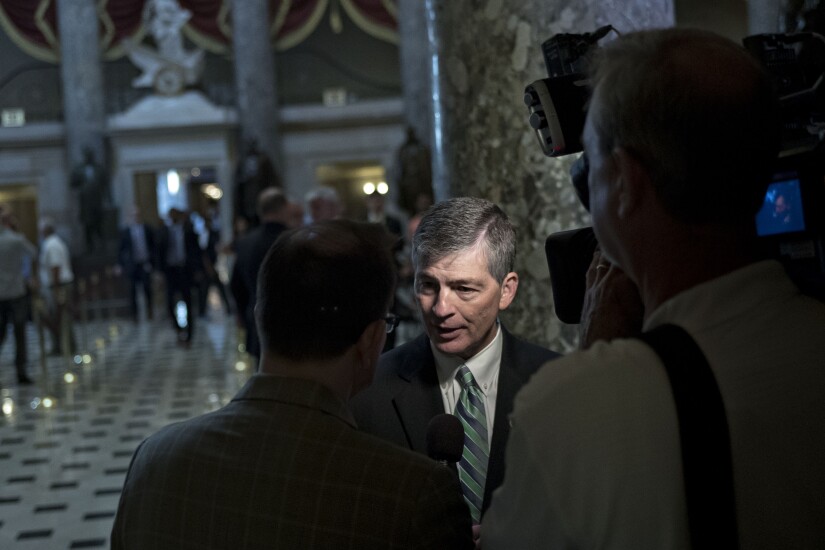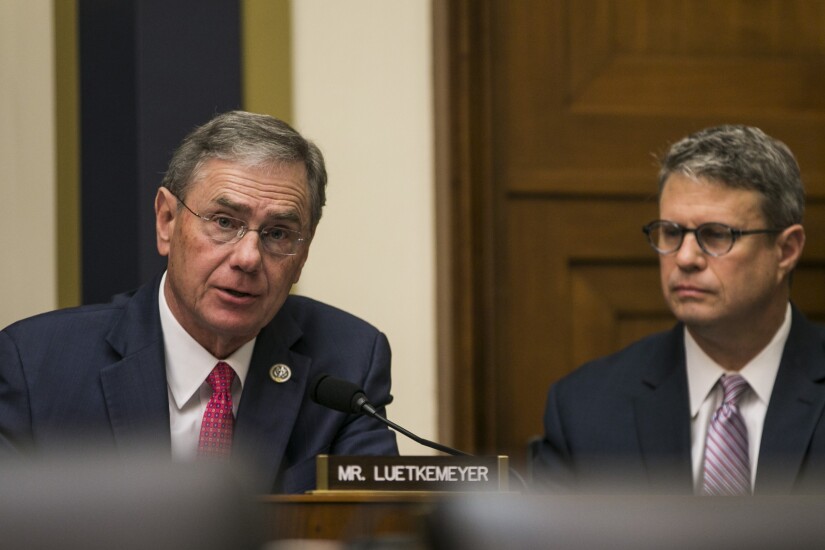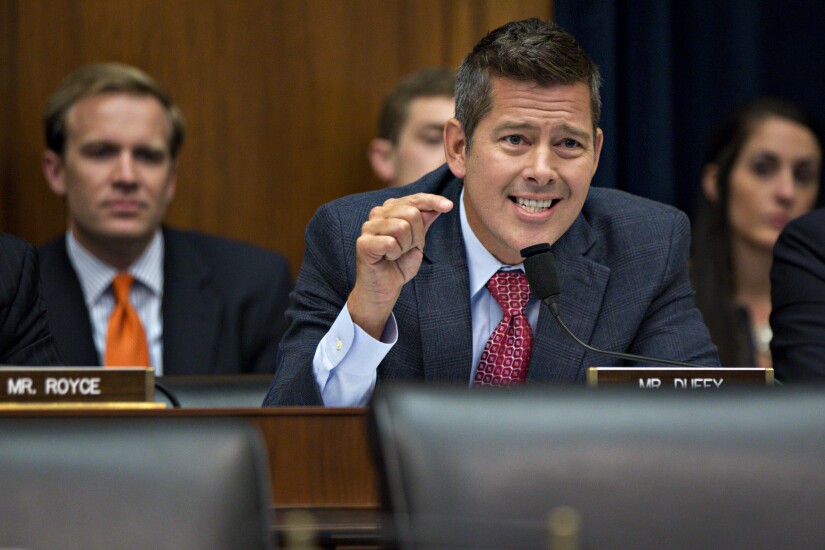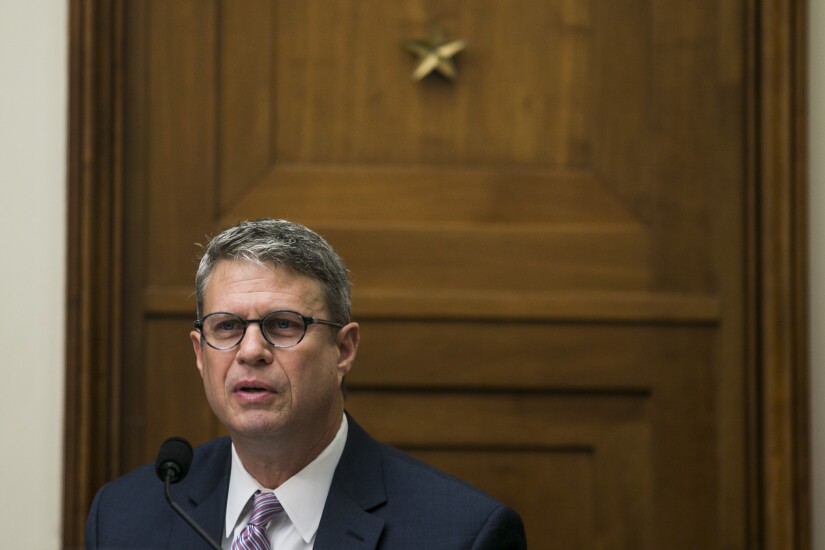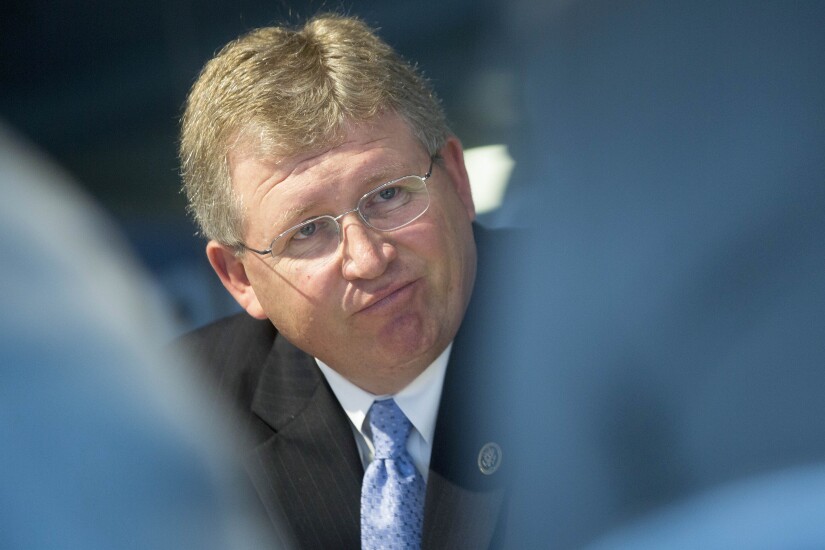WASHINGTON — Which party controls the House next year is still uncertain, but this much is clear: Someone other than Texas Republican Jeb Hensarling will hold the gavel on the Financial Services Committee.
Hensarling is not running for reelection. Should the Democrats take the House in midterm elections, his
Whoever takes over the committee will play a critical role in setting the congressional agenda for Dodd-Frank reform, as well as regulatory policy for financial technology and the use of consumer data.
Observers point to Rep. Patrick McHenry, R-N.C. — now the panel’s vice chairman — as the most likely GOP successor to Hensarling. But McHenry may be considered to climb the GOP leadership ranks, which could open the door to other members being considered.
The committee last year shepherded the Financial Choice Act, Hensarling’s proposed overhaul of the Dodd-Frank Wall Street reforms, through the House. But that bill attracted insufficient Senate support. Hensarling sounded open in recent comments to passing a more modest reform package that originated in the Senate, but it is unclear if other Republicans on the panel will go along or continue to fight for a repeal of Obama-era regulations.
The Senate bill, sponsored by Banking Committee Chairman Mike Crapo, is expected by many to be enacted before the midterm elections. That would preempt any further complications in passing regulatory relief that would arise from the Democrats seizing power in the House in November.
“The most likely scenario" is the Democrats take over the House and Waters is chair, said Aaron Klein, economic studies policy director at the Brookings Institution. “Should the [Republicans] maintain control of the House, a less than 50% proposition at the moment, then it’s likely [Rep. Patrick] McHenry unless he enters and wins a spot in leadership.”
So far, Reps. Blaine Luetkemeyer, R-Mo., Bill Huizenga, R-Mich., and Frank Lucas, R-Okla., have publicly acknowledged their interest in taking Hensarling’s post.
Industry experts have also floated Rep. Sean Duffy, R-Wis., as a possible candidate. And Rep. Ann Wagner, R-Mo., could be in the running if Republicans hold the House given her leadership in pushing the Trump’s administration to kill the Department of Labor’s fiduciary standard for investment advisers.
Here is a rundown of possible GOP candidates to lead the Financial Services Committee in the new term:
